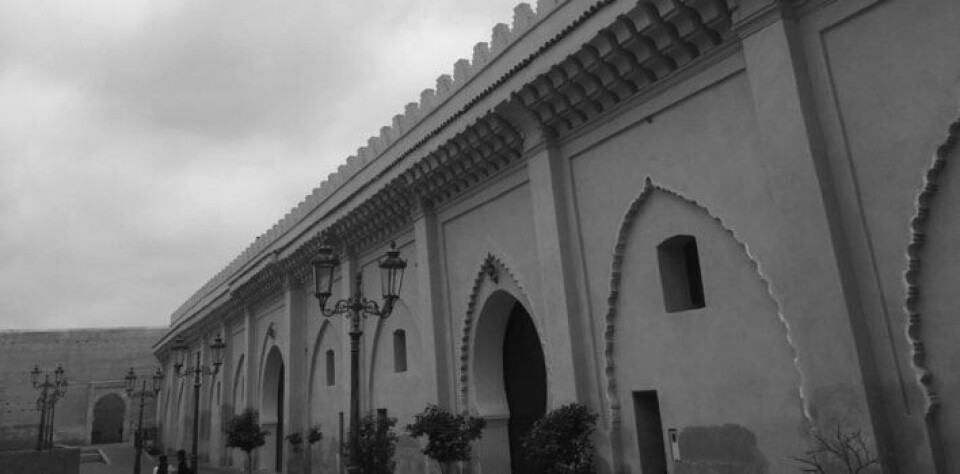Ibn Khaldun, the Tunisian born Arab scholar who lived in the Middle Ages, is reputed to have said that Morocco never ceases to surprise you.
Khaldun’s words rung in my ears when I visited Morocco earlier this month for a conference in the capital, Rabat, called to consider the integration of African youth in development.
Khaldun’s formative years were spent in the Moroccan city of Fes, home to the world’s oldest university.
The celebrated philosopher pondered issues of law and social stability which still have an impact in Africa today.
Now Morocco and other North African countries are seen as the migratory springboard to Europe.
Morocco is separated from Europe by a 13km stretch of Mediterranean Sea and on a clear day, you can see Spain from Tangier. Which is probably why Moroccan King Mohammed VI is driving attempts to create synergies between development and migration policies.
At the Rabat conference, hosted by the Miftah Essaad Foundation, government officials, academics and civil society groups met to consider a topic more intricate than the marvellous mosaics so emblematic of Morocco. Unlike US president Donald Trump, King Mohammed says migration should be a positive force rather than a threat.
It is a “factor of rapprochement between civilisations,” the king says.
Morocco is well placed to facilitate this.
In the 1970s the Moroccan Agency for International Cooperation (AMCI) began training foreign students at taxpayers’ expense, 90% from Africa.
For the last 10 years since AMCI has been keeping statistics, it has collected a database of 56 000 alumni.
Morocco is a geographical and historical nexus between Africa, Europe and the Middle East, a hybrid nation defined by strong Berber traditions, French and Spanish colonialists and various religions.
While a few things are inviolate in Morocco: Islam, the monarchy and the country’s sovereignty, Morocco is generally progressive, the economy sophisticated, and Islam moderate. The country has a constitutional monarchy, parliament and independent judiciary.
There is freedom of expression, though muted at times.
The king read the Arab Spring uprisings well and introduced a raft of reforms which deflated protests. French and Arab investors recently joined Moroccans in unveiling Africa’s first high-speed train and the country’s tourism infrastructure is superb.
Khaldun was right: around every corner, there’s another enchanting surprise, be it architectural, historical and culinary.
Morocco has big, modern developments adjacent to the old cities or medinas. These offer countless, fascinating journeys crisscrossing a maze of curious, colourful alleys. It is a sensory riot.
Participants at the Rabat conference noted that while Moroccans braced themselves to become the springboard to Europe, they discovered many Africans soon turned their transit country into a home.
Karima Belhaj, a data scientist with the National Statistical Office of Morocco, said between 1994 and 2014 immigration into the country (population 33 million) increased from 48 000 to 84 000.
Most immigrants were young and literate, although many are also from France, so the movement is bi-directional.
Senegal's Dr Amadou-Mokhtar M'Bow said Africa's population was swelling, mostly with youngsters. These figures are contested, but
Africa’s 1 billion population is projected to reach 2.5 billion by 2050 and most will be younger than 18.
To feed, educate and employ the youth, Africans have to prioritize education, development and innovation, and get to grips with migration.
A spokesman for the Moroccan royal court, Abdelhaq el Merini, said Morocco was determined to foster social cohesion.
“Islam is based on moderation. We are sincere in the fight against heresy and false versions of Islam and any extremism. We want communication between different cultures,” he said.
Islam is clearly dominant in Morocco, but the country has a history of religious tolerance. There is a huge Christian church in Rabat, for example. Jews have been resident in what is modern-day Morocco for 2500 years and a wave of Jewish exiles, escaping Catholic persecution in Spain, was given refuge in Morocco in 1300.
Professor Gerard-Francois Dumont, a professor from the University of Sorbonne, said migration showed how people “vote with their feet”.
Bachir Edkhil, the founder of Alter Forum International, a Saharan development agency, said migration needed a multidimensional and enlightened approach.
"It is about people seeking a decent living,” he said.
Just as well Moroccans are taking it seriously.
While Morocco might be a tourist paradise, the king’s detractors will say thousands are fleeing for Europe because of the pace of reforms, including in Morocco, which has attracted negative reports by Voice of America and concerns from Amnesty International.
On November 26, Agence France-Presse said Moroccan authorities discovered the bodies of 15 sub-Saharan migrants on board a boat stranded at sea for days.
They rescued 53 survivors. The AFP report said 51 000 African refugees arrived in Spain this year and 61 000 were stopped by authorities.
All the more reason to foster development in Africa. In spite of Morocco’s democracy challenges development appears to be brisk. There are plans to build Africa’s tallest building in Rabat and South African insurance giant, Sanlam, recently paid $1 billion for Moroccan company, Saham Finances.
The Miftah Essaad Foundation says the king wants to help set the African agenda for migration and co-operation.
It’s an essential conversation for African and food for thought, whatever your ideology.
A journalist I met in Rabat said: “You may not agree with everything going on in Morocco, but they get things done.”
To read about how the United Nations Refugee Agency are rewriting the African refugee story click here

